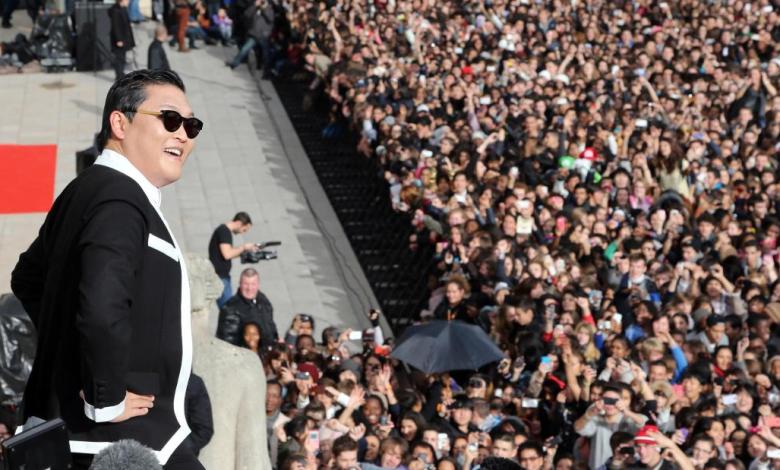There were many instant hits in the early 2010s. Digital platforms have ushered in a new era of public relations—and virality—with songs like the Party Rock Anthem and the Harlem Shake.
Psy, a South Korean rapper and singer, debuted on the world music scene on July 15, 2012, with the catchy words “Oppan Gangnam Style,” a high-energy song, and a memorable horse dance.The song “Gangnam Style” quickly became popular worldwide. Psy’s slicked-back hair and sunglasses made an appearance on US late-night shows, and the song and music video went viral on Facebook. The song made its Billboard Hot 100 debut in September and two weeks later reached the top spot. Also, it was the first YouTube video to receive 1 billion views.
The first video on YouTube to reach 1 billion views in 2012 was the “Gangnam Style” music video. Psy, who was already well-known in his own country but was little-known outside, rose to prominence swiftly and is now one of the most well-known musicians in the world. Within a year, he performed with Madonna at Madison Square Garden and broke three Guinness World Records. The meteoric success was unimaginable for the Seoul native, who was 35 at the time, to have anticipated.In an interview ahead of the song’s 10th anniversary, he compared that period of his life to celebrating a birthday. “You’re so excited the day before,” he tells CNN from the Seoul headquarters of P-Nation, the record label and entertainment agency he founded in 2018. “And then on the day of… it’s all a little wild and crazy.”
But the song’s impact stretched far beyond the music industry. In fact, the success of “Gangnam Style” is credited as a major catalyst for the “Korean wave” or “hallyu,” a term used to describe the recent international spread of Korean culture — something the South Korean government has been trying to enforce through music and media since the 1990s years.
According to Gyu Tag Lee, associate professor of cultural studies specializing in K-pop and Hallyu at George Mason University’s South Korean campus, it was “Gangnam Style” that brought Korean pop culture recognition outside of East Asia.
“These kind of viral Internet media platforms like YouTube have really made K-pop and Hallyu popular and big overseas,” he says.





